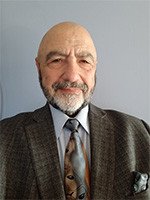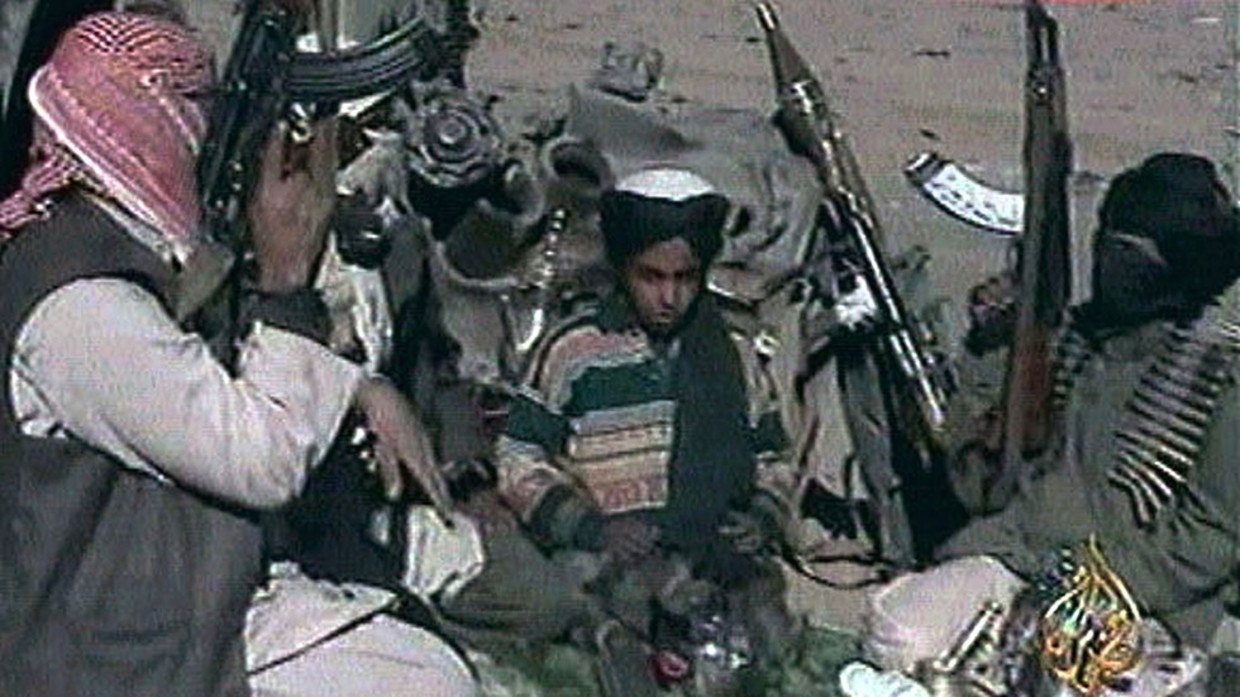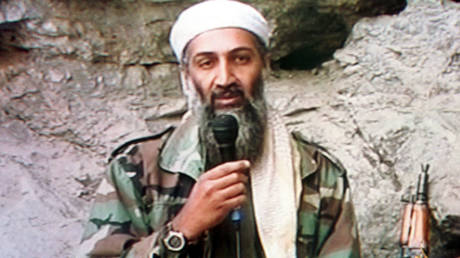It appears that Hamza Bin Laden, a son of the late founder of Al-Qaeda, Osama Bin Laden, may be the heir apparent to lead the militant group, based on what the US State Department now says.
They declared Hamza – believed to be about 30 years old – the emerging leader of the terrorist group and announced a $1 million reward for information about him.
Despite trillions of American dollars spent and the enormous loss of life to try and eradicate Al-Qaeda, it has shown a remarkable resilience and now a resurgence with the demise of Islamic State (IS, formerly ISIS).
Also on rt.com Like father, like son: US authorities offer $1mn reward for capture of bin Laden Jr.The current leader of Al-Qaeda, or AQ, is Ayman al-Zawahiri. Despite the State Department’s announcement, Zawahiri remains in charge but sees Hamza as the next generation of leadership.
What Zawahiri has been doing while the world’s attention has been focused on the questionable destruction of IS has quietly been laying good ground work when AQ’s leadership shifts to Hamza.
Zawahiri, who by his nature is old school and lacks total charisma unlike Bin Laden before him, has recognized the need to maintain a priority on the ‘Far Enemy’ – the West – while putting AQ’s emphasis on the ‘Near Enemy’ by seeking “to create safe bases across the Islamic world for al-Qaeda and its affiliates to function,” according to Sajjan M. Gohel, International Security Director for the Asia-Pacific Foundation, a think-tank based in London.
“This is why he has prioritized on courses of action that are local to the Arab and Islamic world, including countering the Iranian sponsored Shiite militias in Iraq, despite the ambiguous relationship; support the Taliban in Afghanistan, partly out of necessity; counter and challenge Islamic State and oppose ‘apostate’ regimes like those in Egypt and Syria,” Gohel wrote in his 2017 Perspectives on Terrorism. “All of these strategic priorities have been interspersed by al-Zawahiri with calls for attacks against the West and, in particular, the United States.”
As a result, AQ has been experiencing a slow but sure resurgence just as Islamic State has seen the demise of its caliphate in Syria and Iraq.
US President Donald Trump recently stated that Islamic State’s so-called caliphate in Syria and Iraq was “100 percent” defeated. However, he failed to mention that the terrorist group has metastasized to over 20 countries – clearly a technical oversight on his part.
The same day the US announced that it put a price on Hamza’s head, the UN Security Council’s IS and Al-Qaeda Sanctions Committee similarly declared him to be the next upcoming leader of AQ.
In January 2017, the State Department placed Hamza on its infamous sanctions list by declaring him a Specially Designated Global Terrorist. He can’t travel to cooperating countries with the sanctions and US citizens can’t engage in financial or business activities with him. It is thought Hamza now resides in the Afghanistan-Pakistan region.
Osama Bin Laden had determined prior to his forced demise and that of another son, Khalid, at the hands of US SEALs in Abbottabad, Pakistan on May 2 2011, that Hamza would be his heir apparent.
Ironically, Hamza was not at the Abbottabad compound when the attack occurred, although US intelligence thought he was there. Indeed, there are references in documents seized by the SEALs during the Abbottabad raid that Bin Laden had been grooming Hamza since he was 12 years old.
Earlier, Bin Laden was reportedly grooming another son, Hamza’s older brother Saad Bin Laden, eventually to lead Al-Qaeda, but he was killed in 2009 in a US drone attack.
The sudden announcement by the State Department and the UN Sanctions Committee that Hamza is expected to be the new leader of AQ isn’t entirely surprising.
At its glory from 2014 to 2016, IS was the most prominent jihadi militant group to be feared. This prompted AQ to settle into the background. Indeed, the rise of IS with all of its ferocity and brutality, especially among other Muslims, actually helped a reemerging AQ, since it is regarded among Muslims as more “moderate.”
With the battlefield defeat of IS in Syria, US officials have warned about a resurgent AQ to fill the jihadi Salfist militancy void.
“US officials have stated that Al-Qaeda still maintains a foothold in Syria through its ties to Hay'at Tahrir al Sham (formerly known as the Nusra Front), though the exact nature of that relationship may be evolving,” according to a February 2018 report titled ‘Al-Qaeda and US Policy: Middle East and Africa’.
Tore Refslund Hamming, a visiting researcher at the Danish Institute of International Studies, seemed to put AQ’s resurgence in perspective.
“Al-Qaeda has been positioning itself as the less extreme, and thus more tolerable jihadist group,” Hamming wrote. “Al-Qaeda in the Arabian Peninsula’s (AQAP) image benefited the emergence of a more brutal jihadi outfit in Yemen as it suddenly appeared more digestible in the eyes of the local population than Islamic State — while perhaps being a lesser priority for the regime — and international opponents.”
“Similar dynamics have been evident in Afghanistan after the January 2015 emergence of Islamic State’s Khorasan Province. This reasoning can be extended more generally to suggest that Al-Qaeda in some ways benefited from the emergence of Islamic State, which made certain behavior more or less attractive to pursue,” Hamming added.
“For Al-Qaeda, it was important not to be conflated with its former affiliate and its image of brutality and sedition,” he said. “The presence of an even more extreme group thus enabled Al-Qaeda to position itself as more ‘moderate’ and to win the sympathy of the Muslim public in the areas where it was engaged.”
Zawahiri himself laid the groundwork for Hamza focusing future attacks against the United States and other western targets.
“Perhaps Al-Qaeda leader Ayman al-Zawahiri’s most recent speech from March 20 (2018) offers some indications to answer this question,” Hamming said.
“The speech, titled ‘America is the First Enemy of the Muslims’ reiterates Osama Bin Laden’s discourse that the West, especially the United States, is the primary enemy of the jihadists, as this far enemy controls its local agents in the Middle East and even the behavior of rebel groups.”
“Al-Zawahiri pronounces that the only method that will deter the West is jihad, before ending his speech with a call to ‘rise to fight America, the head of the snake.’ Al-Qaeda has all along emphasized the priority of striking the West, even during the period when it had little to show in terms of attacks, but the past year has seen a surge in declarations to strike the far enemy from al-Zawahiri and emirs of Al-Qaeda affiliates. Perhaps the most important proponent of such attack has been none other than Hamza Bin Laden, Osama’s son.”
READ MORE: Trump tells Europe to 'take back' 800 ISIS fighters or US 'will be forced to release them'
An ex-FBI agent gave a sobering account of what to expect with Hamza as the future leadership of AQ.
Calling Hamza the “poster kid” for Al-Qaeda, Ali Soufan who reviewed captured videos and correspondence from the 2011 SEAL raid on Bin Laden’s house in Abbottabad, Pakistan said, “(Hamza) was a poster kid for Al-Qaeda… and for members of Al-Qaeda, who were indoctrinated with these propaganda videos, he means a lot to them.”
In his interview with the the Sun (Britain), Soufan quoted a now declassified letter that Hamza had written to his father: “Every look… every smile you gave me, every word you told me. I consider myself to be forged in steel. The path of jihad for the sake of God is what we live [for].”
Indeed, AQ in 2015 had released an audio message from Hamza calling for terrorist attacks in London, Washington and Paris.
Unless Hamza is captured in the meantime he will represent a new, resurgent generation of terrorist threats to the West, emboldened not only by his lifelong indoctrination but by a steel determination spawned by the deaths of his own father and brother.
Think your friends would be interested? Share this story!
The statements, views and opinions expressed in this column are solely those of the author and do not necessarily represent those of RT.



